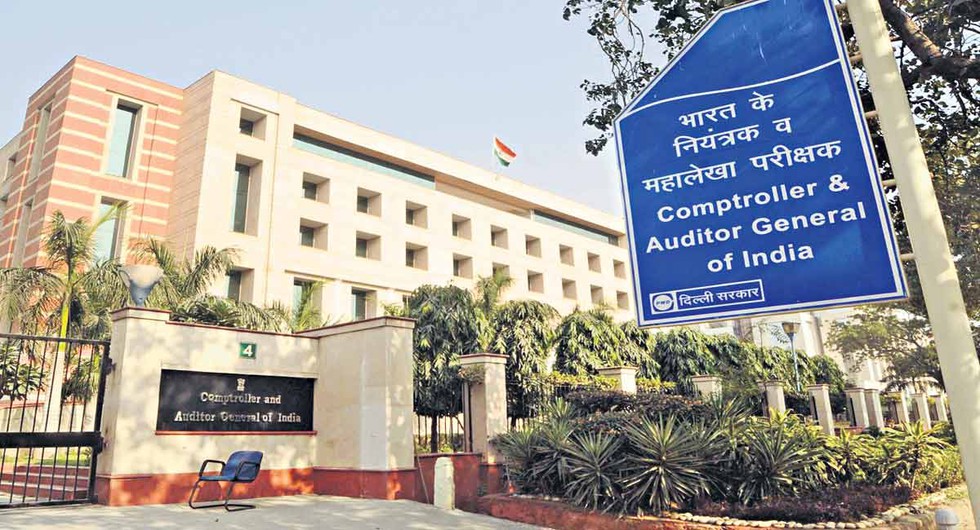About:
- Comptroller and Auditor General of India is the apex authority responsible for external and internal audits of the expenses of the National and state governments in the country.
- The Constitution of India provides for an independent office of the Comptroller and Auditor General of India (CAG) in Chapter V.
- The CAG is mentioned in the Constitution of India under Article 148 – 151.
Constitutional Provisions:
- Article 148 broadly deals with the CAG appointment, oath and conditions of service.
- Article 149 deals with duties and powers of the Comptroller and Auditor-General of India.
- Article 150 says that the accounts of the Union and of the States shall be kept in such form as the President may, on the advice of the CAG, prescribe.
- Article 151 says that the reports of the Comptroller and Auditor-General of India relating to the accounts of the Union shall be submitted to the President, who shall cause them to be laid before each House of Parliament.
- As per Article 279 Calculation of "net proceeds" is ascertained and certified by the Comptroller and Auditor-General of India, whose certificate is final.
- Third Schedule of the Constitution of India prescribes the form of oath or affirmation to be made by the Judges of the Supreme Court and the Comptroller and Auditor-General of India at the time of assumption of office.
Appointment and Terms of Service:
- As per Article 148 of the Constitution, there shall be a Comptroller and Auditor-General of India who shall be appointed by the President and can be removed from office only in the manner and on the grounds that a Judge of the Supreme Court is removed.
- He holds office for a period of six years or upto the age of 65 years, whichever is earlier.
Functions of CAG:
- CAG audits the accounts related to all expenditure from the Consolidated Fund of India, Consolidated Fund of each state and UT’s having a legislative assembly.
- He audits all expenditure from the Contingency Fund of India and the Public Account of India as well as the Contingency Fund and Public Account of each state.
- He audits all trading, manufacturing, profit and loss accounts, balance sheets and other subsidiary accounts kept by any department of the Central Government and the state governments.
- CAG audits the receipts and expenditure of all bodies and authorities substantially financed from the Central or State revenues; government companies; other corporations and bodies, when so required by related laws.
- He audits the accounts of any other authority when requested by the President or Governor e.g. Local bodies.
- He advises the President with regard to prescription of the form in which the accounts of the Centre and States shall be kept.
Reports by CAG:
- The CAG submits his audit reports relating to the accounts of the Centre to the President, who shall, in turn, place them before both the houses of Parliament.
- He submits 3 audit reports to the President-
- Audit report on appropriation accounts
- Audit report on finance accounts
- Audit report on public undertakings
- He also submits his audit reports relating to the accounts of a State to the Governor, who shall, in turn, place them before the state legislature.
